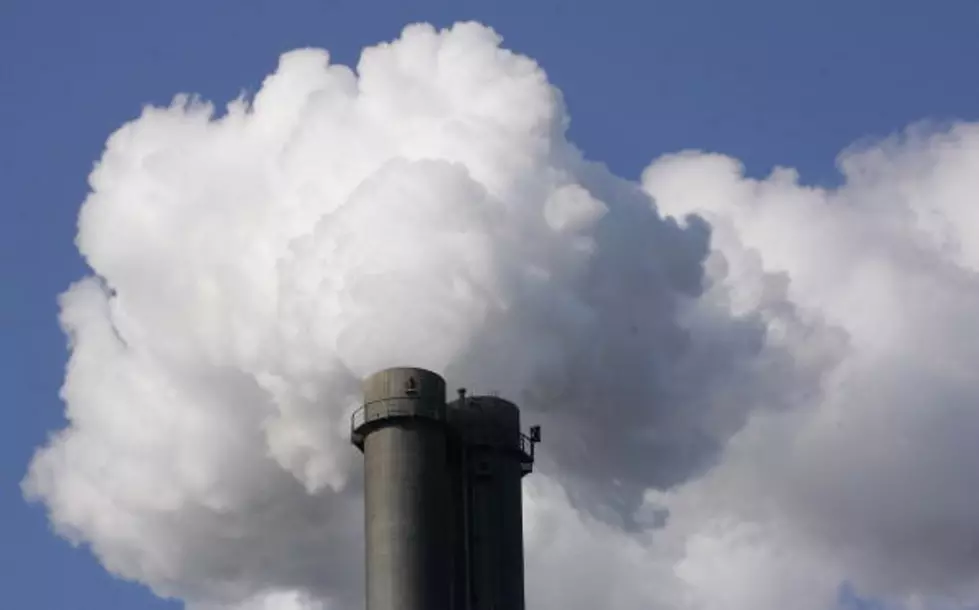
New Study: Wyoming Helps Green The Earth
Call it airborne fertilizer.
Earth has been getting greener. And the rate of that greening has accelerated.
Thanks in part to CO2 released from coal and natural gas power plants in places like Wyoming.
The greening is caused by more atmospheric carbon dioxide according to new findings recently published.
The greening is not uniform. No one would expect it to be.
About 55% of the global land mass revealed an “accelerated rate” of vegetation growth, while at the same time, 7.3% showed a decline or ‘browning’.
This greening has been known since 1980, with estimates showing levels as high as 14%.
This new study back up several older studies, including one detailed paper published in 2016 by 32 authors from eight countries, a “persistent and widespread increase” in greening over 25-50% of the global vegetated area was observed and recorded.
Dr. Roy Spencer, former senior scientist with NASA has long spoken of CO2 as good for plants with plenty of scientific evidence showing that they grow faster as a result of the boost.
“Though CO2 is necessary for life on Earth to exist, there is precious little of it in the Earth’s atmosphere.”
Levels of CO2 have been much higher than the present over the 600 million years that life has existed on Earth, and plants evolved when there was more of the gas in the atmosphere.
In recent times more CO2 in Earth's atmosphere has contributed to an estimated annual 2.4-3.8% rise in maize, rice, soybean, and wheat – four staples that provide 64% of human caloric intake, studies like the one at this link shows.
CO2 produces much less warming than previously thought.
Atmospheric Professor Yi Huang of McGill University, along with some others, has reduced by nearly 40% the basic amount of warming caused by a doubling of atmospheric carbon dioxide.
These studies show that CO2 hardly can heat the atmosphere beyond the levels already passed in the pre-industrial age.
“Transmissivity in the CO2 band centre is unchanged by increased CO2 as the absorption is already saturated,” (Published by the American Meteorological Society in its Journal of Climate).
The state of Wyoming is capturing and sequestering one of the most important gasses necessary for life on this planet.
This important gas is being treated as a harmful pollutant. It will be captured and stored underground in the hopes that it never escapes into the atmosphere.
About 70% of the Earth’s post-1980s vegetative greening trend has been driven by CO2 fertilization. More greening has offset or reversed 29% of recent anthropogenic CO2 emissions. Greening also has a net cooling effect on surface temperatures.
Earlier this year we highlighted a study (Haverd et al., 2020) asserting rising CO2 and warming are the dominant drivers of Earth’s strong post-1980s greening trend.
This greening expands Earth’s carbon sink so profoundly that by 2100 the greening of the Earth will offset 17 years (equivalent) of anthropogenic CO2 emissions.
A 17% offset over 80 years, or net CO2 emissions reversal, would easily supplant the effectiveness of Paris climate accord CO2 mitigation policies.
So according to a study by a major university, CO2 makes the planet greener by promoting plant growth. The more plants, and the bigger they are, the less the planet warms.
But that's just one study. Let's look at another. This one is rather high-tech.
New Paper: CO2 Rise + Warming Are 91% Responsible For The Earth’s Accelerated Greening Trend Since 1990.
Satellite observations indicate the Earth has become much greener in recent decades. According to scientists, the overwhelming majority of the “significant increases in tropical forests and the forests of North America, Eurasia, and China” since the early 1990s can be attributed to the combination of CO2 fertilization (56%) and climate change (35%).
Let's have a look at a major publication that recently wrote about CO2 and how it causes the greening of our planet.
A new peer-reviewed study in Science Mag. reveals the greening of the Earth by rising CO2 levels
The vegetation-climate loop
Just as terrestrial plant biomass is growing in response to increasing atmospheric CO2, climate change, and other anthropogenic influences, so is climate affected by those variations in vegetation. Forzieri et al. used satellite observations to analyze how changes in leaf area index (LAI), a measure of vegetation density, have influenced the terrestrial energy balance and local climates over the past several decades. An increase in LAI has helped to warm boreal zones through a reduction of surface albedo and to cool arid regions of the southern hemisphere by increasing surface evaporation. Furthermore, more densely vegetated areas displayed a greater capacity to mitigate the impact of rapid climate fluctuations on the surface energy budget.Science, this issue p. 1180
So why doesn't the news media sit up and take notice when a scientist screams out, "YOU'RE GETTING IT WRONG!"
The term “carbon pollution” is a deliberate, ambiguous, disingenuous term, designed to mislead people into thinking carbon dioxide is pollution. It is used by the environmentalists to confuse the environmental impacts of CO2 emissions with the impact of the emissions of unwanted waste products of combustion. The burning of carbon-based fuels (fossil fuels - coal, oil, natural gas - and biofuels and biomass) converts the carbon in the fuels to carbon dioxide (CO2), which is an odorless invisible gas that is plant food and it is essential to life on the planet. (ICECAP).
Take your time and read what these scientists and major institutions have to say. Since you have probably heard only one side of the story your entire life you might have to give yourself a little time to process what you are reading.
Always have as much information as you can before you decide.
Breathtaking Fall Sunsets From Across Wyoming
Gallery Credit: Glenn Woods
More From Wake Up Wyoming









